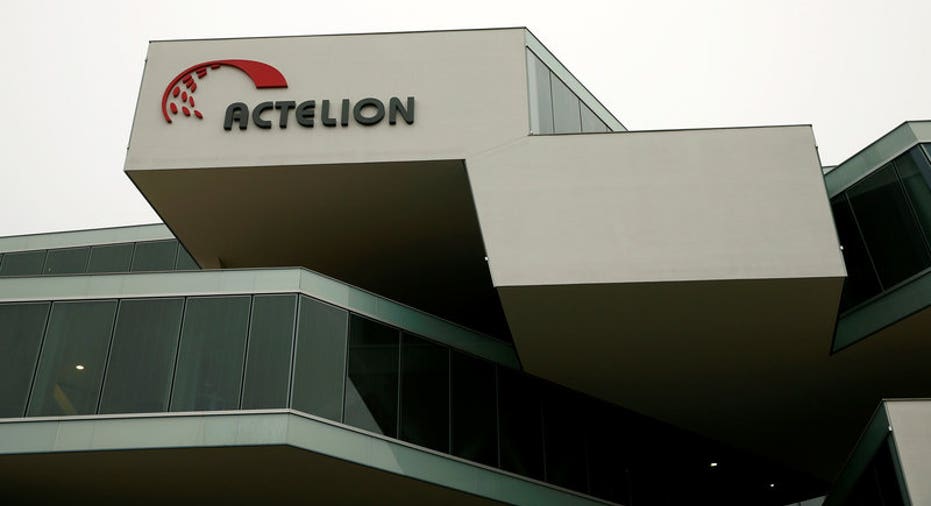Actelion's ambitious independent-minded CEO will drive up takeover price

ZURICH – Actelion Chief Executive Jean-Paul Clozel's desire to keep Europe's biggest biotech company independent after building it from scratch, means Johnson & Johnson will have to pay a steep premium if a takeover is to succeed.
The U.S. healthcare titan on Friday confirmed talks with the Swiss maker of medicines for deadly pulmonary arterial hypertension (PAH). While Actelion confirmed the courtship, it said there was no guarantee of a deal.
Actelion's rare-disease focus makes it an attractive target, since its drugs face less price pressure than other more widely used medicines.
Analysts estimate a deal could be as high as 250 Swiss francs ($247) per share, valuing Actelion at around $26 billion, or $6 billion more than its current price even after the share's 17 percent surge on Friday.
Having fended off reported approaches by Shire in 2015 and hedge fund Elliott Advisors in 2011, Clozel, a French-born cardiologist, has repeatedly asserted his desire to go it alone, with his three main PAH drugs and with pipeline medicines he hopes will create a broad-based biotech company.
This hard-to-get approach, coupled with the high value of recent deals in the sector, will drive up Actelion's takeover price, analysts said.
"Similar deals have been at a 40-plus percent premium and we view 240 Swiss francs as a possible floor takeout value," Jefferies analyst Peter Welford said.
Analysts at Bryan Garnier suggested a bid price of up to 250 francs.
In another recent biotech takeover, Pfizer paid $14 billion for cancer specialist Medivation, or double its pre-deal value. Switzerland's Roche in 2014 paid $8.3 billion for InterMune, a 63 percent premium.
Clozel and his pediatrician-wife, Martine Clozel, Actelion's chief science officer, own 5 percent of the company they founded in 1997. Close ties with Actelion's Swiss shareholder base suggest they can mobilize support, should an offer not live up to their expectations, Welford said.
If J&J fails to strike a deal, a rival like Sanofi could well step in, analysts said. Actelion's PAH portfolio is a potentially nice fit for the French drugmaker's Genzyme rare disease unit.
Sanofi, which lost out to Pfizer in the battle for Medivation, has said it is still looking for deals.
A spokesman for Sanofi declined to comment on the company's possible interest in Actelion.
NEW DRUGS
While the patent for Actelion's PAH blockbuster Tracleer expired last year, Clozel's two newer PAH drugs, Opsumit and Uptravi, are expected to take up the slack.
Opsumit's annual sales are set to hit 1.9 billion francs by 2020, according to Reuters data. Uptravi sales could top 2.5 billion francs.
Clozel plans to use the cash to fund his late-stage pipeline, which includes medicines for treating diarrhea-causing clostridium difficile, as well as the multiple sclerosis drug ponesimod.
Stefan Schneider, a Bank Vontobel analyst in Zurich, doubts a deal will go through and said any sign that a potential buyer will tinker with Clozel's prized pipeline to cut costs could be a deal killer.
"We don't see how the CEO would part from the pipeline where he sees the value for Actelion to transform into the first European large-cap biotech company," Schneider said.
Actelion's shares have risen six-fold to nearly 190 francs since the start of 2012, just after Elliott tried to wrest control - on the grounds the company's stock should fetch 70 francs.
As retirement edges closer, analysts said it is possible Clozel is more receptive to handing over the reins, especially if a buyer agrees to retain Actelion's presence in Basel where the company, however successful, still plays second fiddle to giants Roche and Novartis.
"Actelion's shares have risen 400 percent based on the strength of the PAH portfolio alone," Zuercher Kantonalbank analyst Michael Nawrath said.
"Even when Clozel has always made the case for independence, it's possible a stock price at its zenith, combined with his 61 years, could prompt a change of heart."
($1 = 1.0139 Swiss francs)
(Editing by Ben Hirschler and Susan Fenton)



















